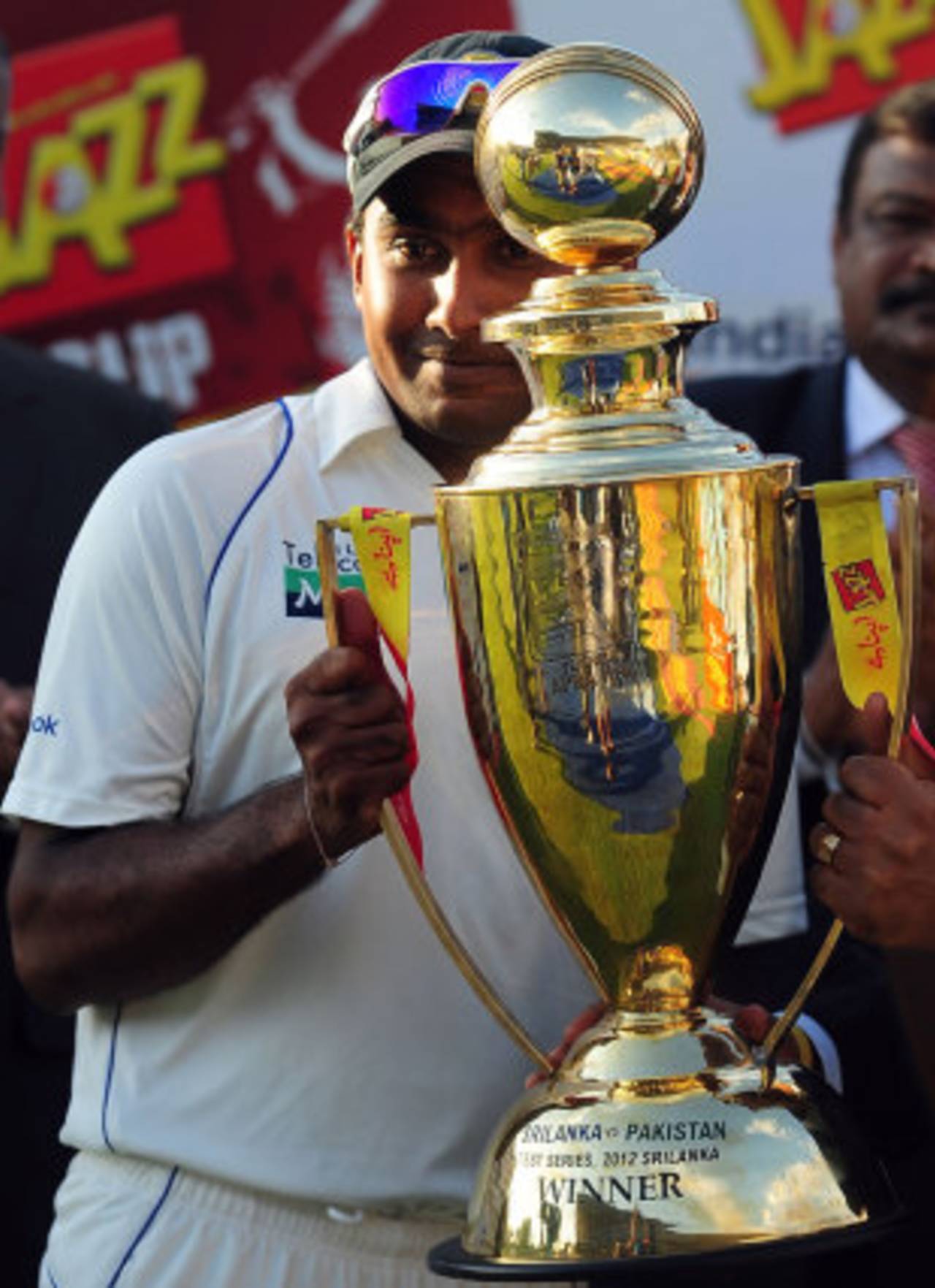Mahela Jayawardene is a good batsman and comes across as a thoughtful, astute cricketer in most of his public pronouncements. It was with some surprise therefore that I read
his article this morning justifying Sri Lanka's decision to call off the chase in their last Test against Pakistan, thus earning themselves a 1-0 win, but generating considerable angst among many cricket fans. (The reaction to this decision is similar, in some regards, to that generated by
India's calling off a chase against the West Indies in Dominica last year. There are some interesting differences as well: India were playing away against a weak team, Sri Lanka were playing at home against a weaker team as well, but one always capable of surprises.)
Jayawardene offers some cricketing reasons for this decision:
"We failed to rotate the strike because Pakistan bowled really well. When they set negative fields, we decided not to risk it either. They were 0-1 down and everything to play for. If we had needed around 90 runs at just under six an over, we would have promoted Thisara Perera. When you are up against a quality bowling attack like Pakistan's, if you give them a sniff, they could run through the batting. We had to ensure we cut out unnecessary risks, because we played close to 15 days of grueling Test cricket."
"I don't want to argue with armchair critics who give their views on what we should or shouldn't have done. I had to make a decision for millions in Sri Lanka who haven't experienced a Test series win for nearly three years. When I took over as captain, my job was to get the ship back on track. Slowly but surely, we are winning matches, executing our game plans and a young team is taking greater responsibility. I didn't want to rattle that because of what a few people want me to do. Obviously, common sense prevailed. I didn't want to jeopardise the hard work put in by this bunch for an hour and a half of Twenty20 cricket."
This is exceedingly curious. For one thing, Jayawardene is arguing with armchair critics and committing the fallacy that what matters is who makes the critique, not the content of it. Secondly, Jayawardene seems to imagine that playing attacking Test cricket is Twenty20 cricket. This equation of Test cricket with T20 is perhaps the strangest part of the claims that Jayawardene makes (I'm leaving aside for the moment, the question of how Mahela has figured out that Sri Lankans might not have been more interested in an entertaining chase that led an emphatic 2-0 series win than this stodgy, safety-first approach.)
The idea that playing attacking Test cricket is tantamount to throwing caution to the winds, to batting in T20 style, to going for the fences all the time (or whatever your conception of T20 amounts to) is a misconception of the attacking version of Test cricket, and it surprises me to hear Mahela make this claim. Quick singles anyone? The language of 'armchair critics who want me to play T20 in a Test' suggests a great deal of defensiveness, one perhaps underwritten by a sneaking feeling that it is the only way to justify the excessive caution on display in Pallekele.
But I don't want to lay all the blame at Mahela's door. What about Pakistan? For what seems to have been forgotten in the hubbub over Jayawardene's decision is that Pakistan collaborated with him. If a captain up 1-0 in a series offers to call off the match, which captain in his right mind, one who has declared in order to try and set up a win, accepts? Why didn't Misbah-ul-Haq, on realising that Sri Lanka had no intention of chasing, simply say 'No thanks' and crowd the their batsmen with close-in fielders? Surely the Sri Lankans' evident tentativeness would have played right into the Pakistani team's hands?
Test cricket is in trouble, goes the refrain. When captains imagine that playing aggressively in Tests requires them to play T20 and when 0-1 down counterparts cannot see an opening handed to them, then perhaps one might say that it is indeed.
